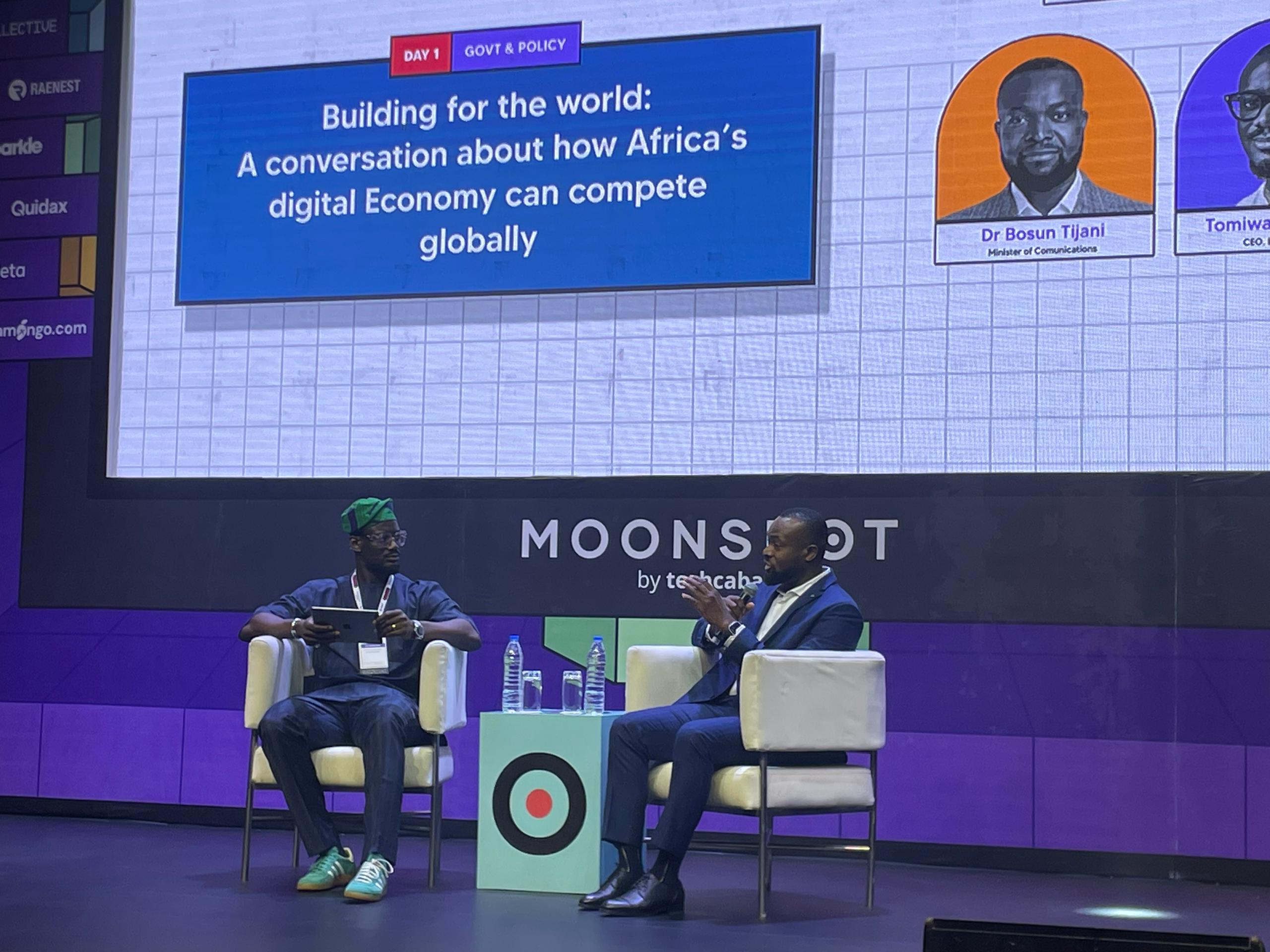Bosun Tijani, Nigeria’s Minister of Communications, Innovation and Digital Economy, said artificial intelligence (AI) can transform the country into an economic powerhouse.
“We would have failed our people and the future generation if we sleep on artificial intelligence because these are a set of technologies that will control what you think, how you think, and how you do everything,” he said during a fireside chat with Tomiwa Aladekomo, CEO Big Cabal Media at Moonshot by TechCabal on Wednesday in Lagos.
One of the biggest criticisms the minister has faced in his first year in office has come from the ministry’s artificial intelligence efforts. In August 2024, the ministry released the first draft of the national AI strategy and recently launched an AI collective backed by $1.5 million in funding. However, critics say Nigeria’s AI ambitions are premature, citing existing infrastructure problems.
Bosun Tijani disagrees.
“The reality is that if you’re going to be visionary about it, there’s absolutely no way you focus on weaker problems,” Tijani said about public opinions deriding the government for ignoring problems like electricity and education.
The minister believes that there is an economic opportunity for Nigeria to digitise the data that large language models (LLMs) require to function. AI tools do not currently possess a lot of context on Africa and that gap can be filled by Nigerians.
“It’s a business opportunity that continents like Africa should be leading,” Tijani said. He also thinks that the AI push from his ministry is future-proofing Nigerians ahead of the artificial intelligence age.
Tijani has his mind set on how technology can improve Nigeria and for anyone who cares to listen, he believes that there are five pillars that his ministry can build its foundation on.
The first pillar of the ministry’s strategic plan is talent and the ministry wants to invest in the “foundational set of talents that can drive progress,” referencing the ambitious Three Million Technical Talents (3MTT) programme that aims to create a pipeline of human capital and make Nigeria a “net exporter of talent.”
“If technology is to truly help drive growth in Nigeria, the government must invest in talent very early,” he said.
Another pillar of that agenda is laying the infrastructure for Nigeria’s digital economy. “Without connectivity, there’s no digital technologies that can truly scale,” he said. The ministry plans to lay an additional 90,000km of fibre backbone to bring Nigeria’s total backbone network to 125,000km.
The third pillar of that agenda is policy. “Our policies should be pro-innovation and not just be there for revenues,” he said.
But perhaps the best way to think about Tijani’s thirty-minute session is what he wants his legacy to be. The minister told over 3,000 founders, business leaders, innovators, venture capitalists, and regulators that he wants to be remembered as the minister who built platforms.
He sees platforms through a three-pronged approach where he wants to increase Nigeria’s backbone fibre network; introduce a GEO system in Nigeria and transform how the government uses technology.




















